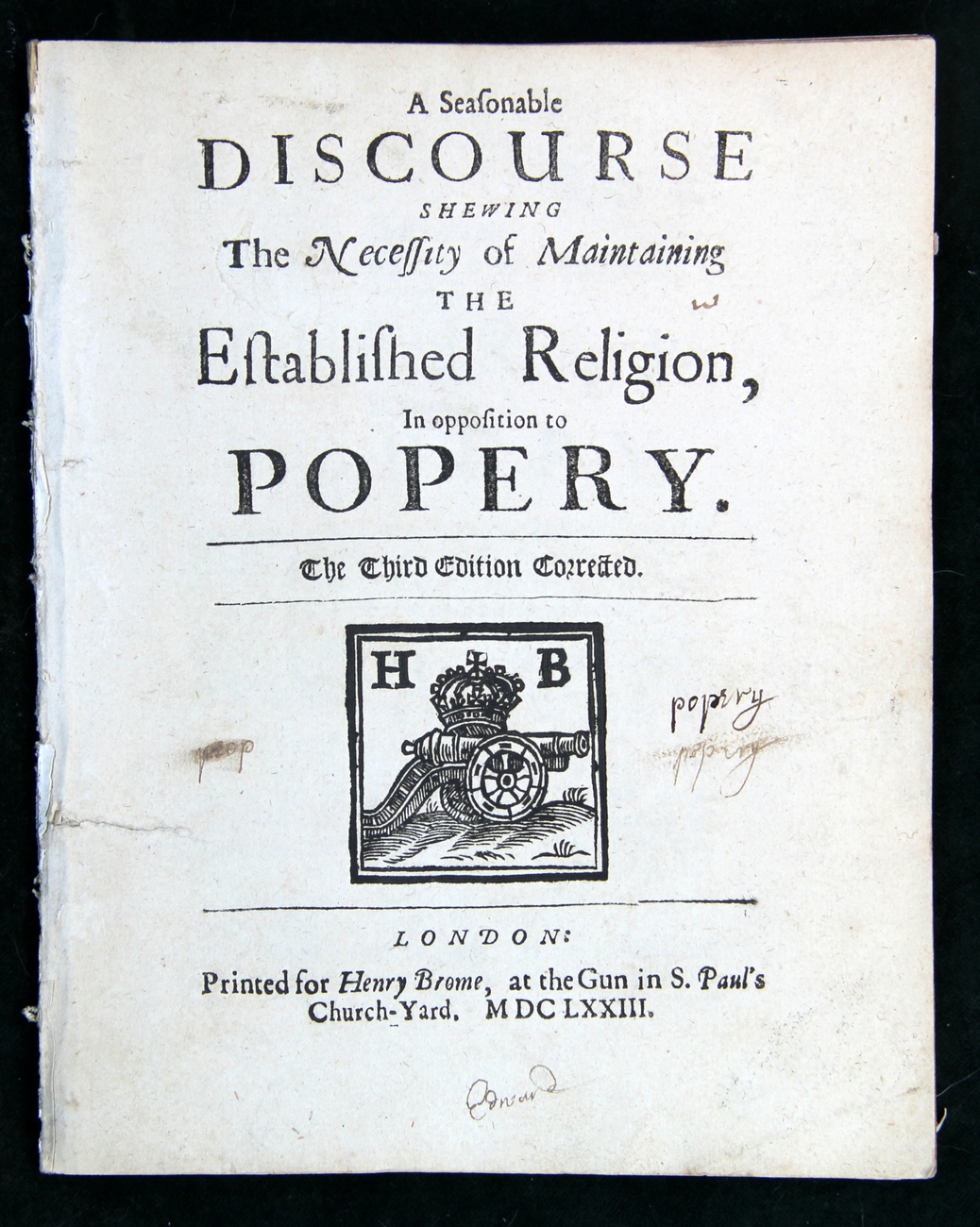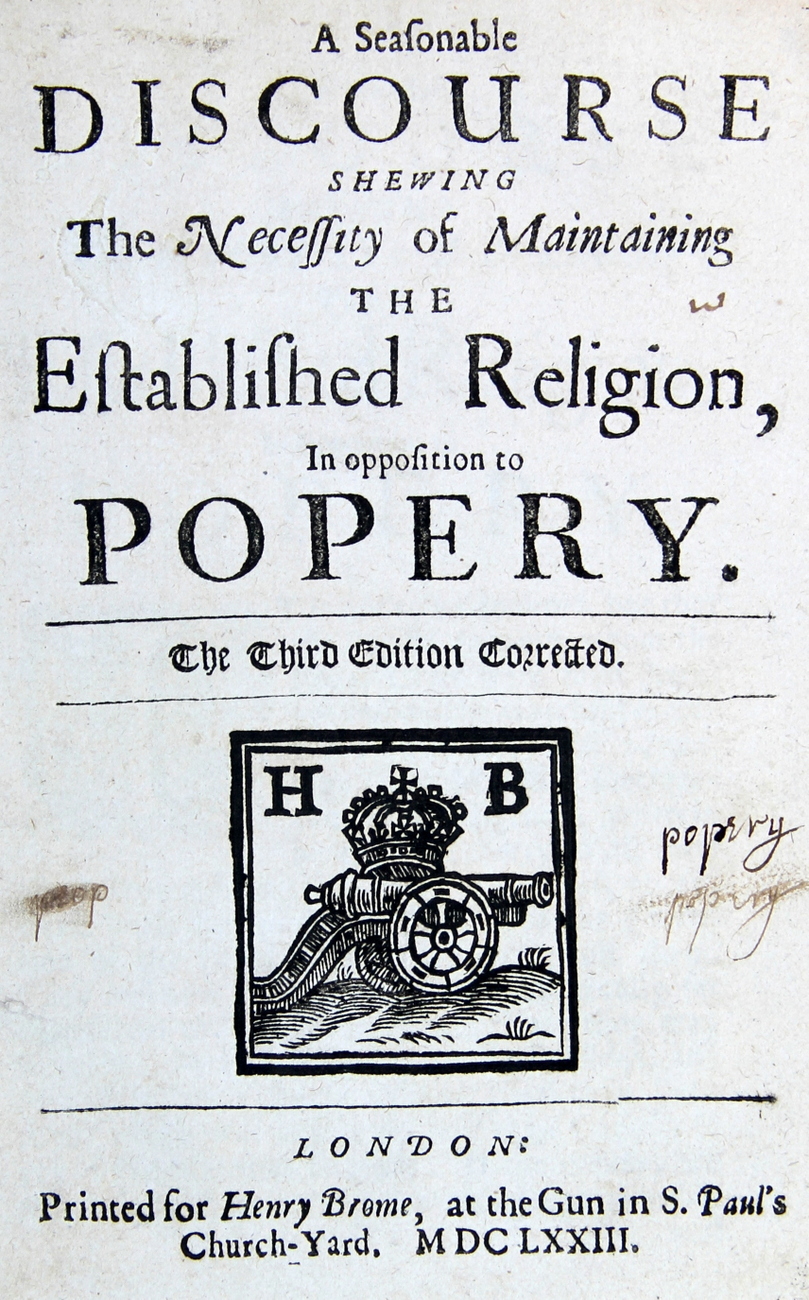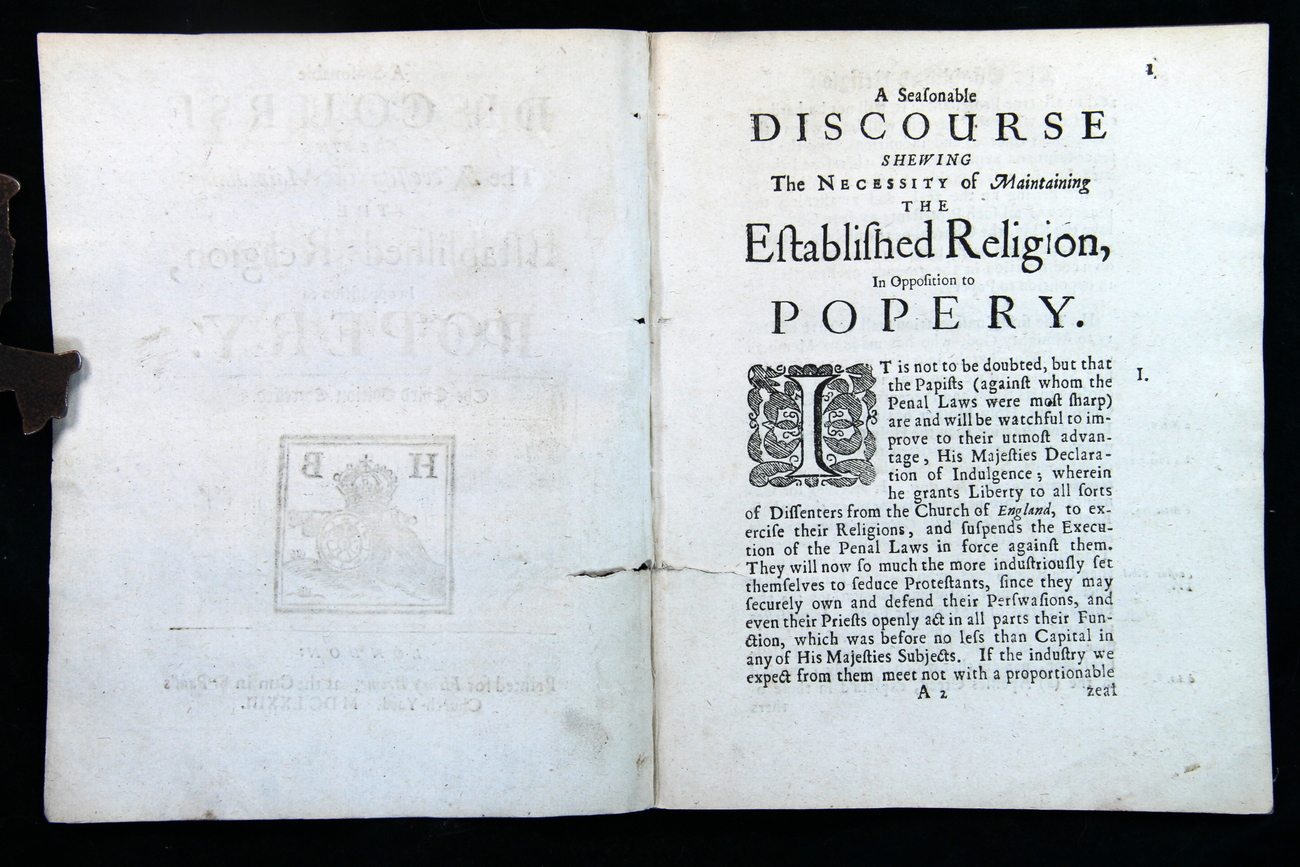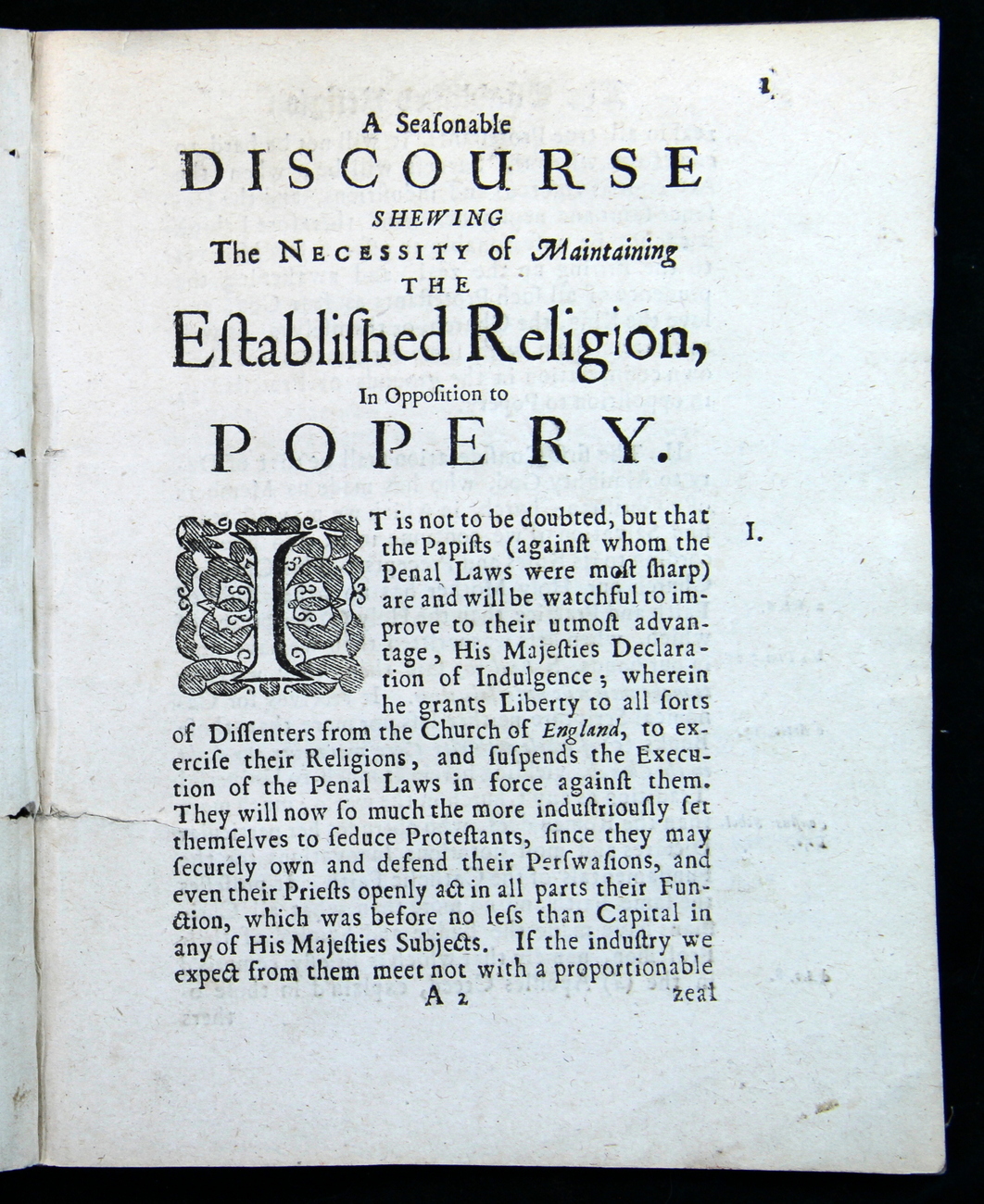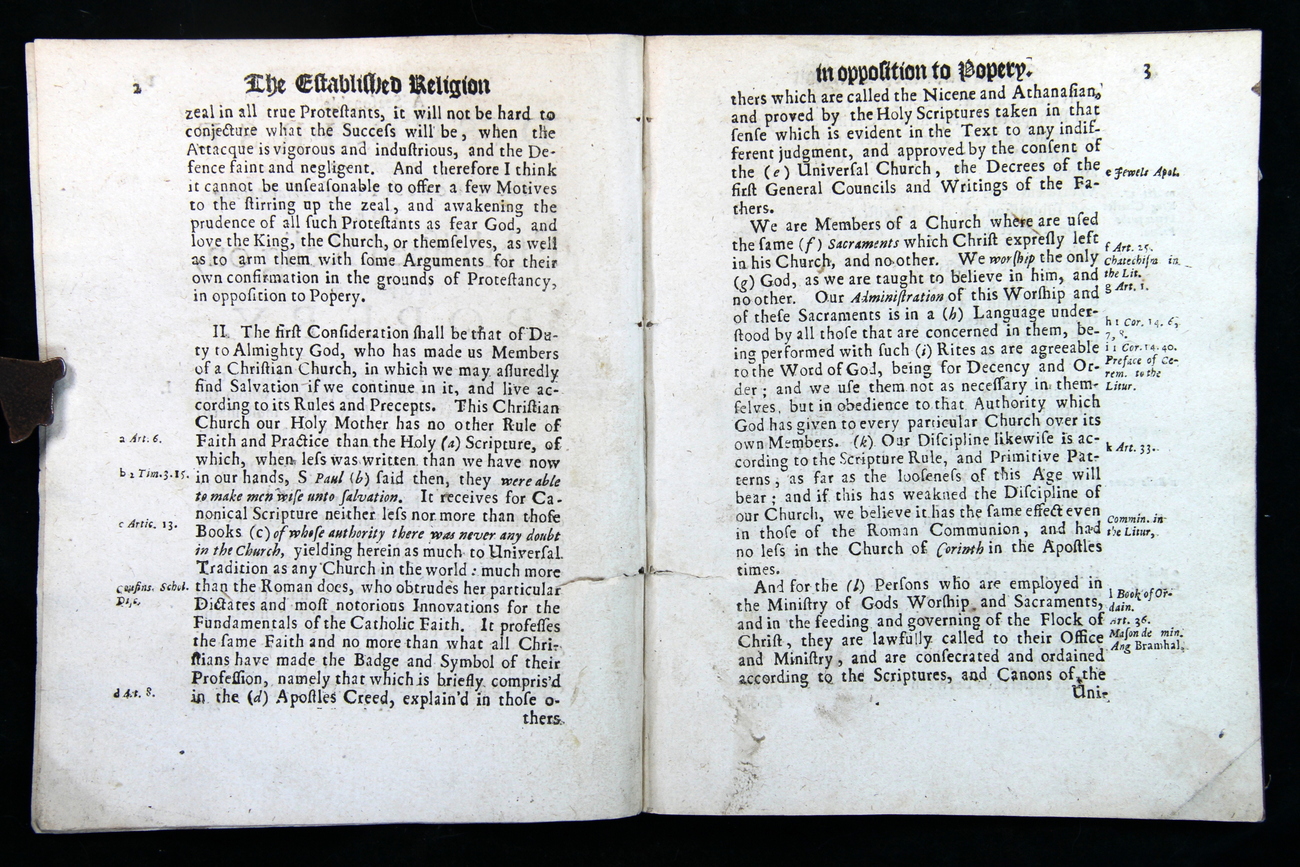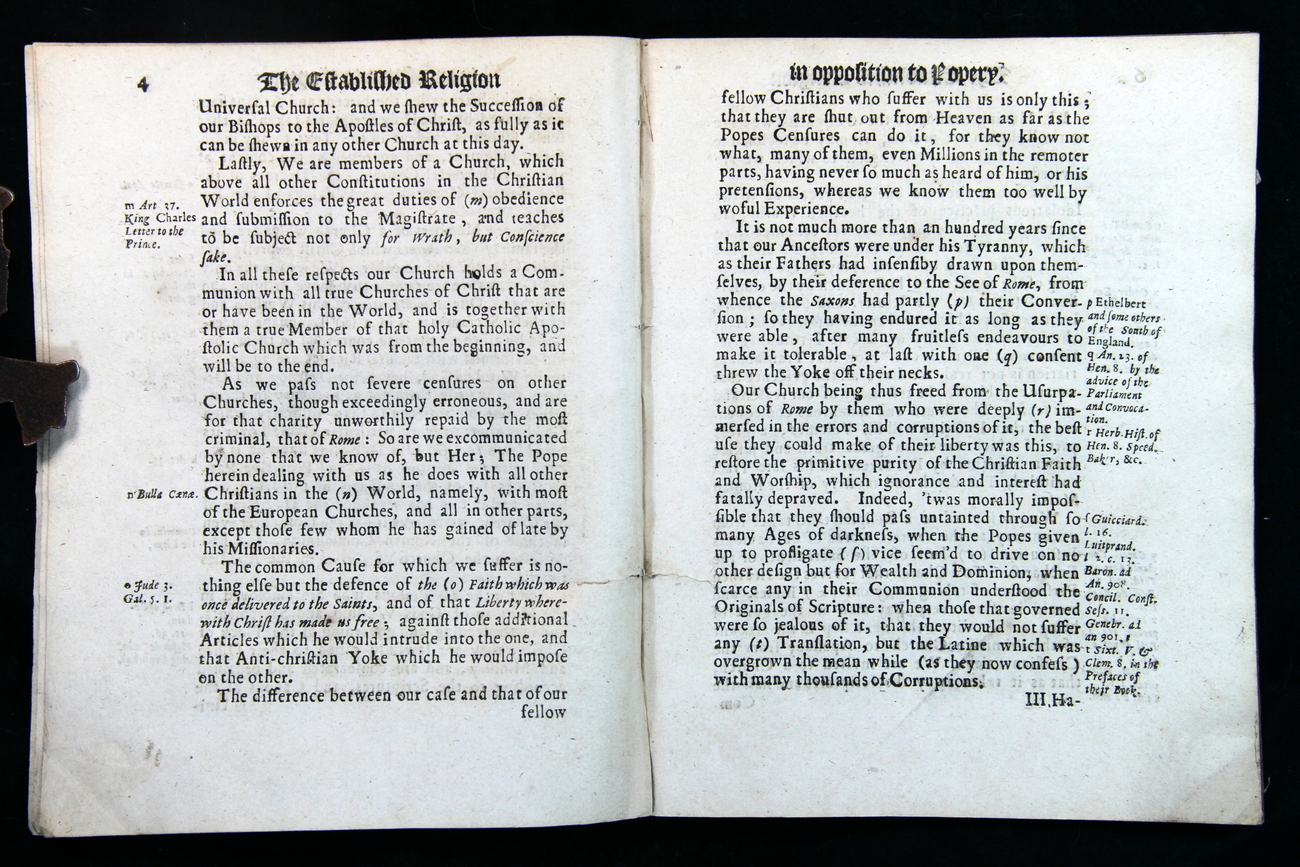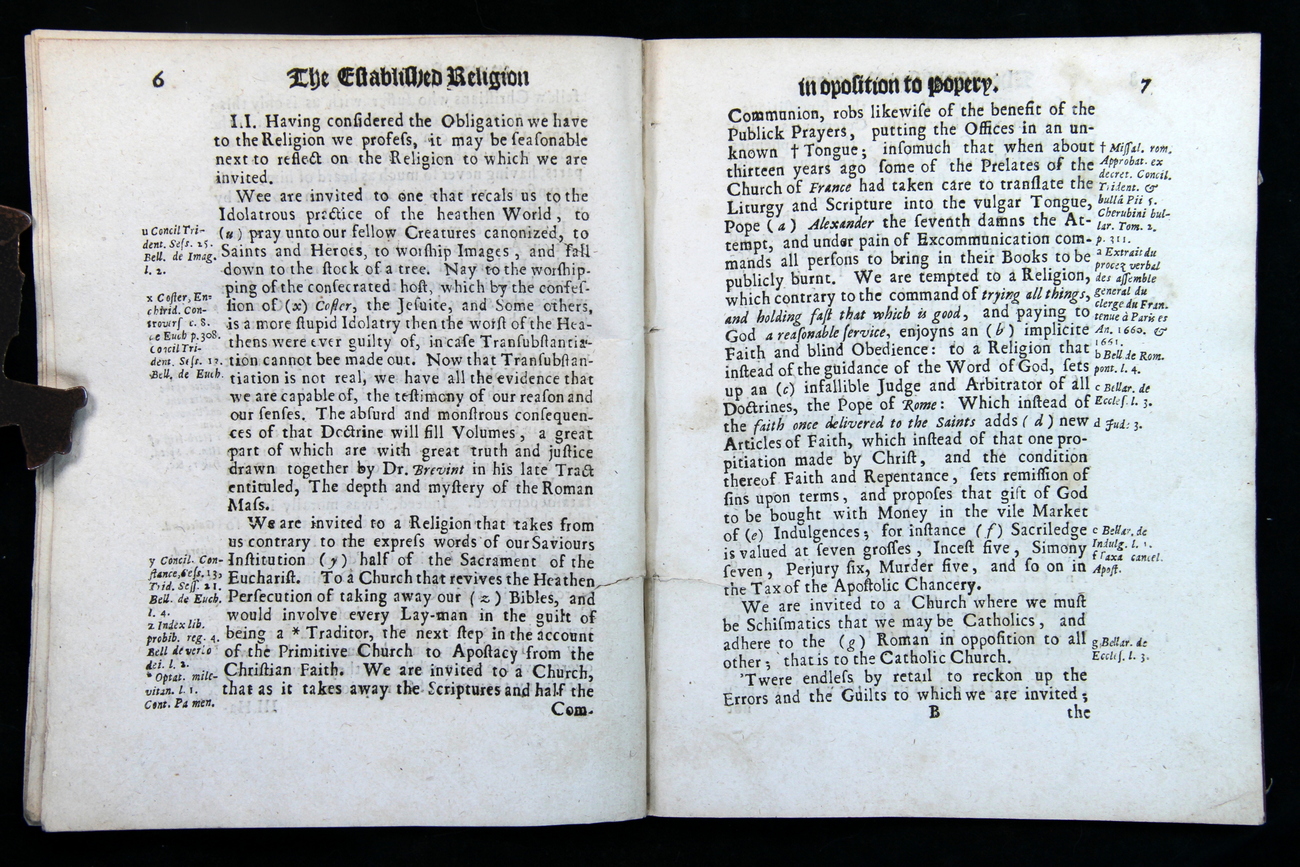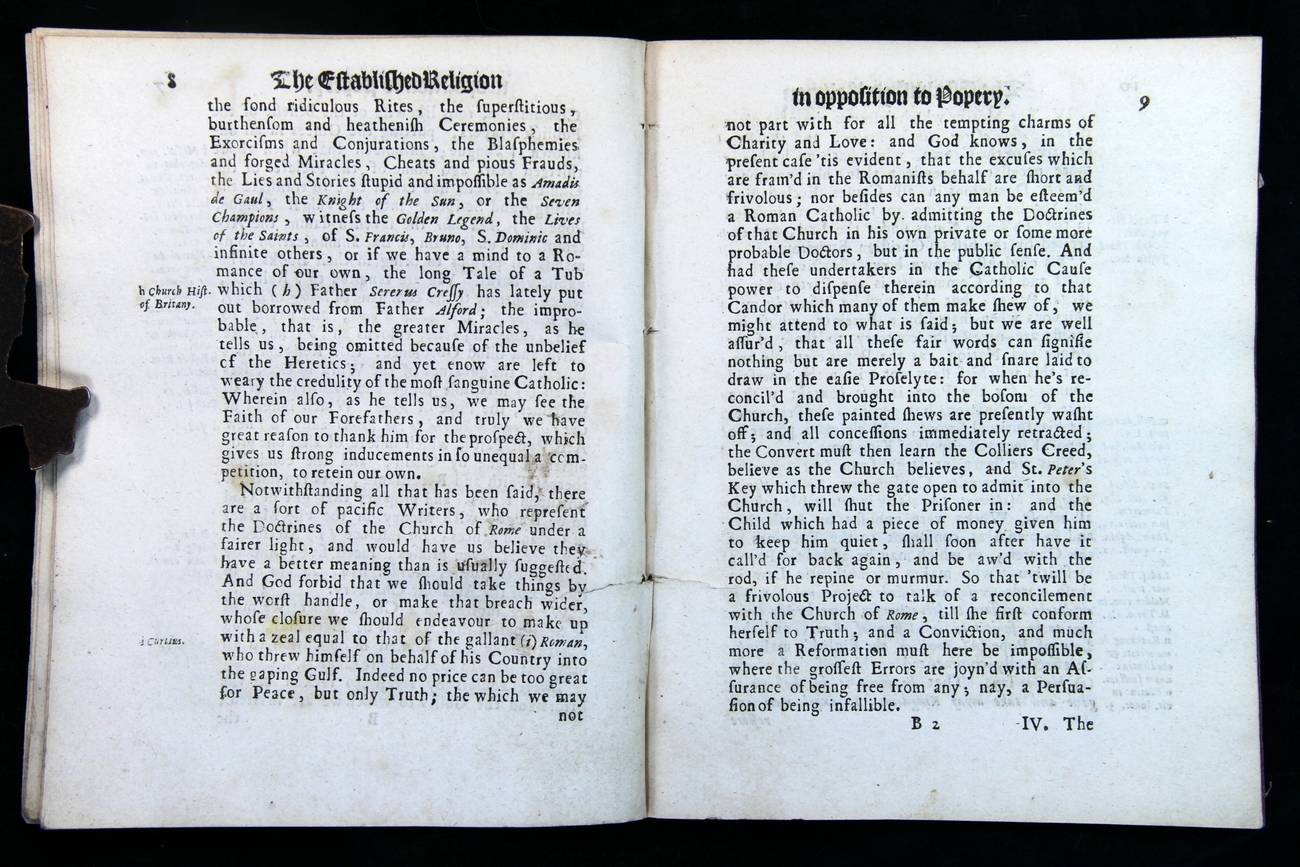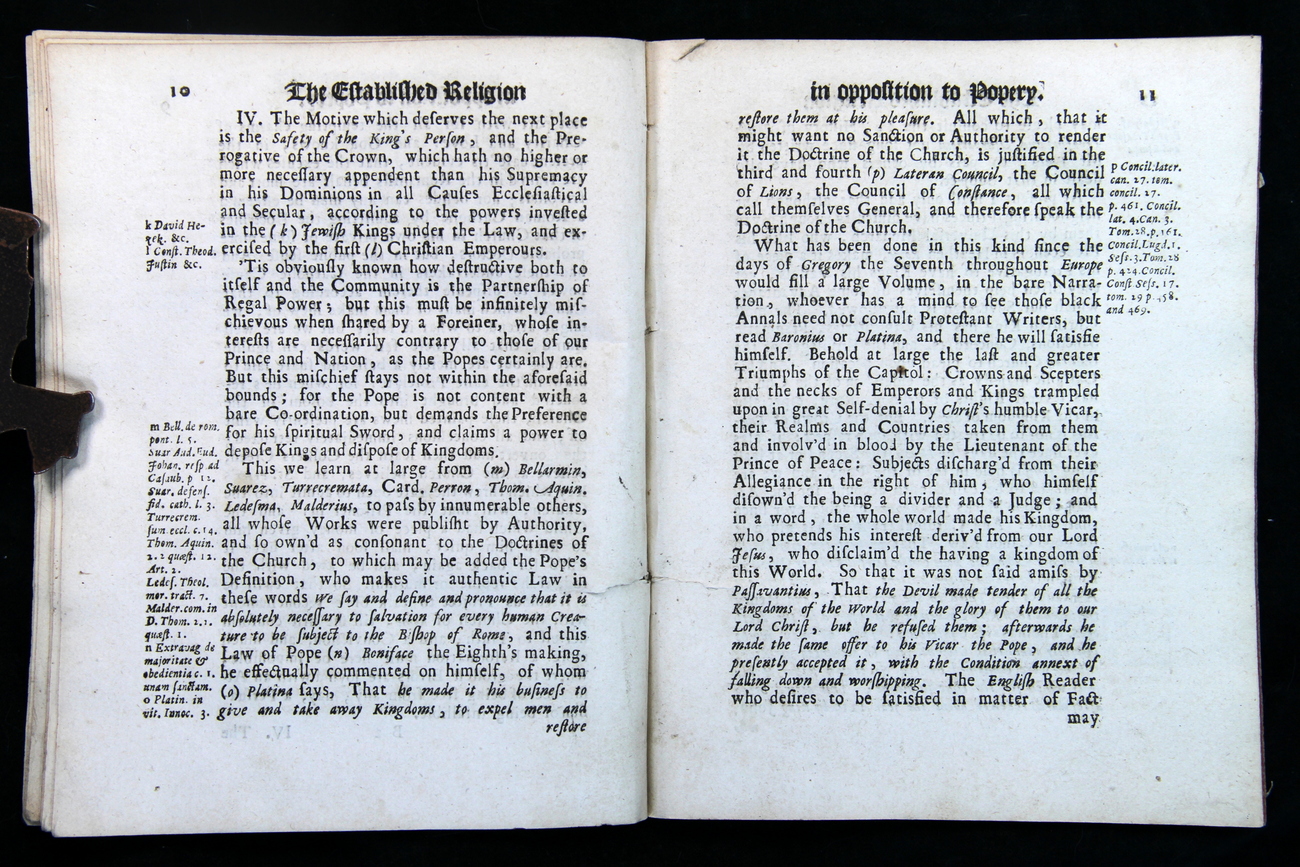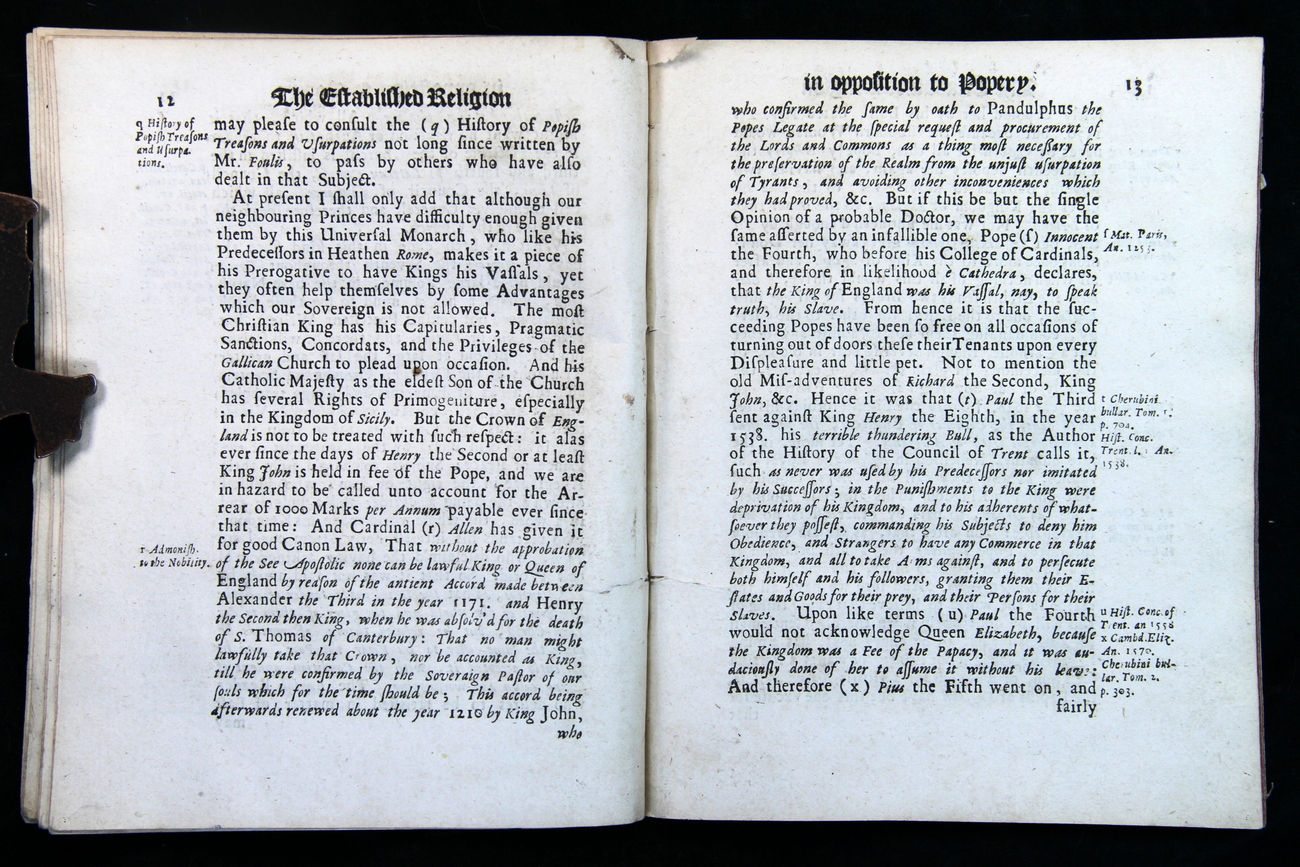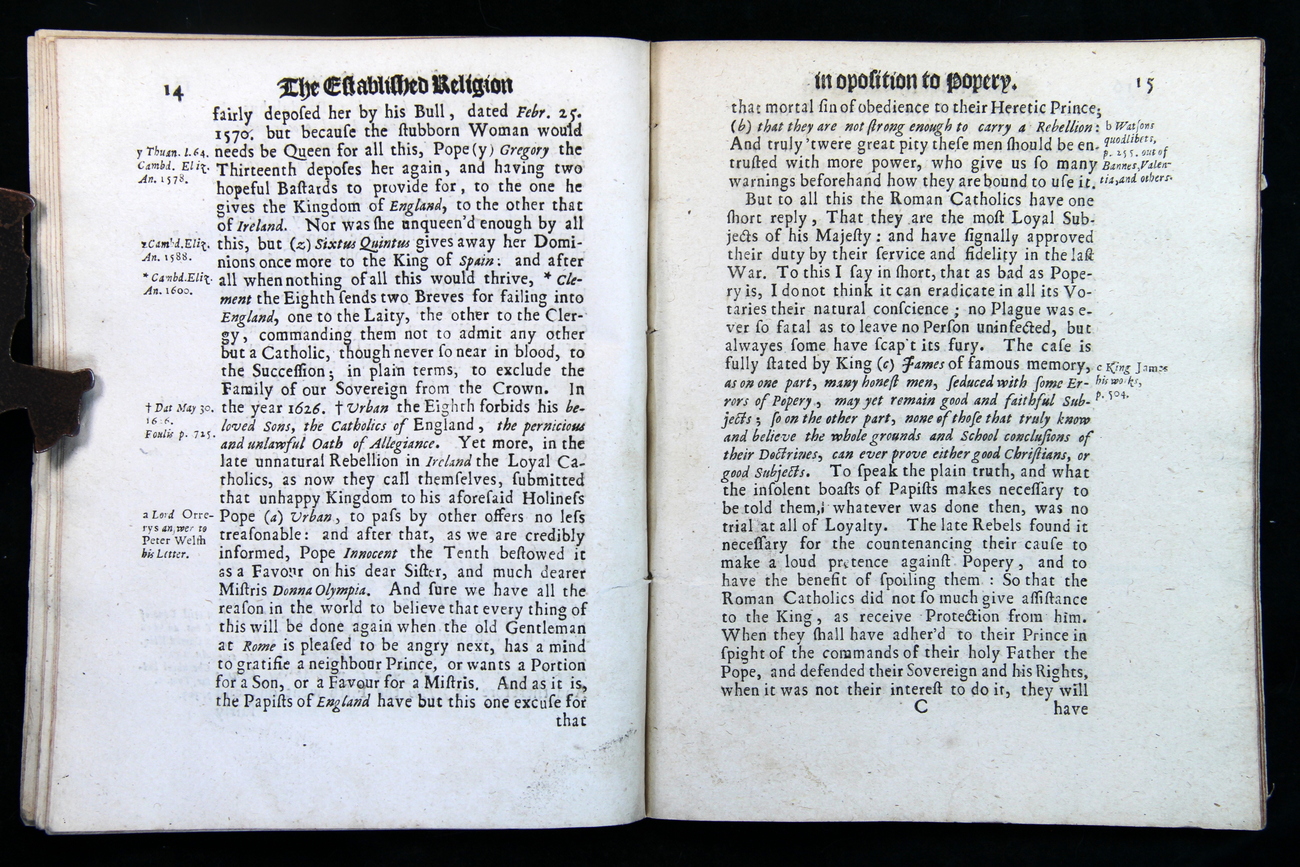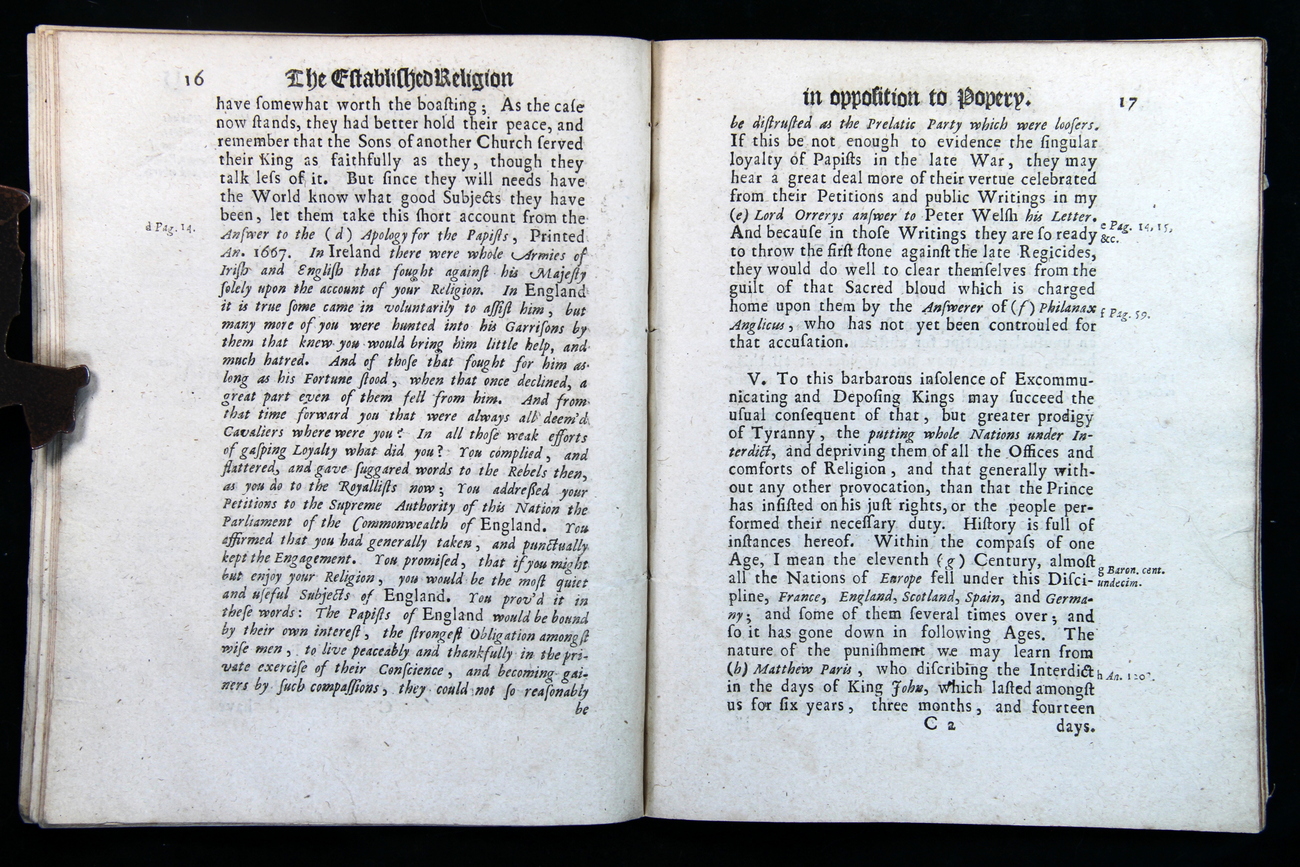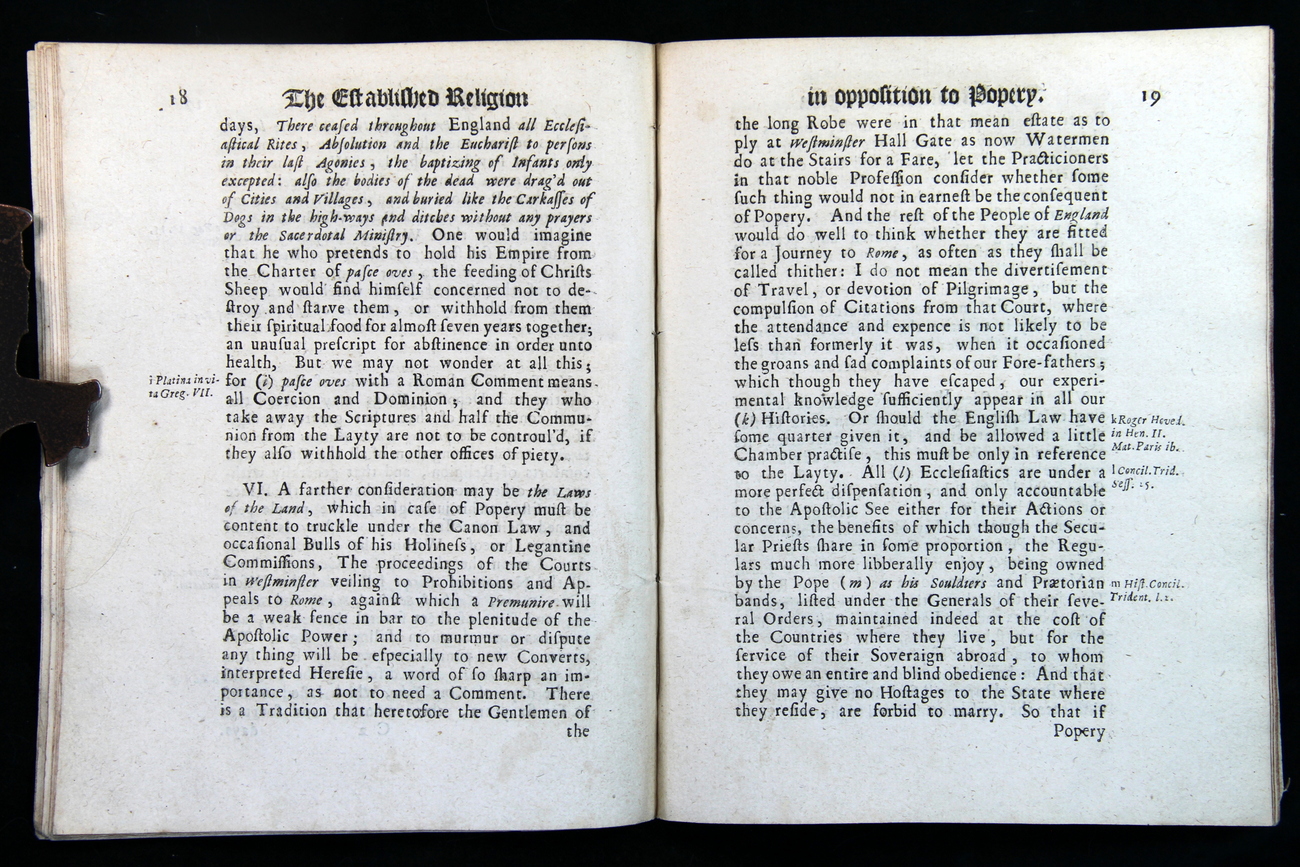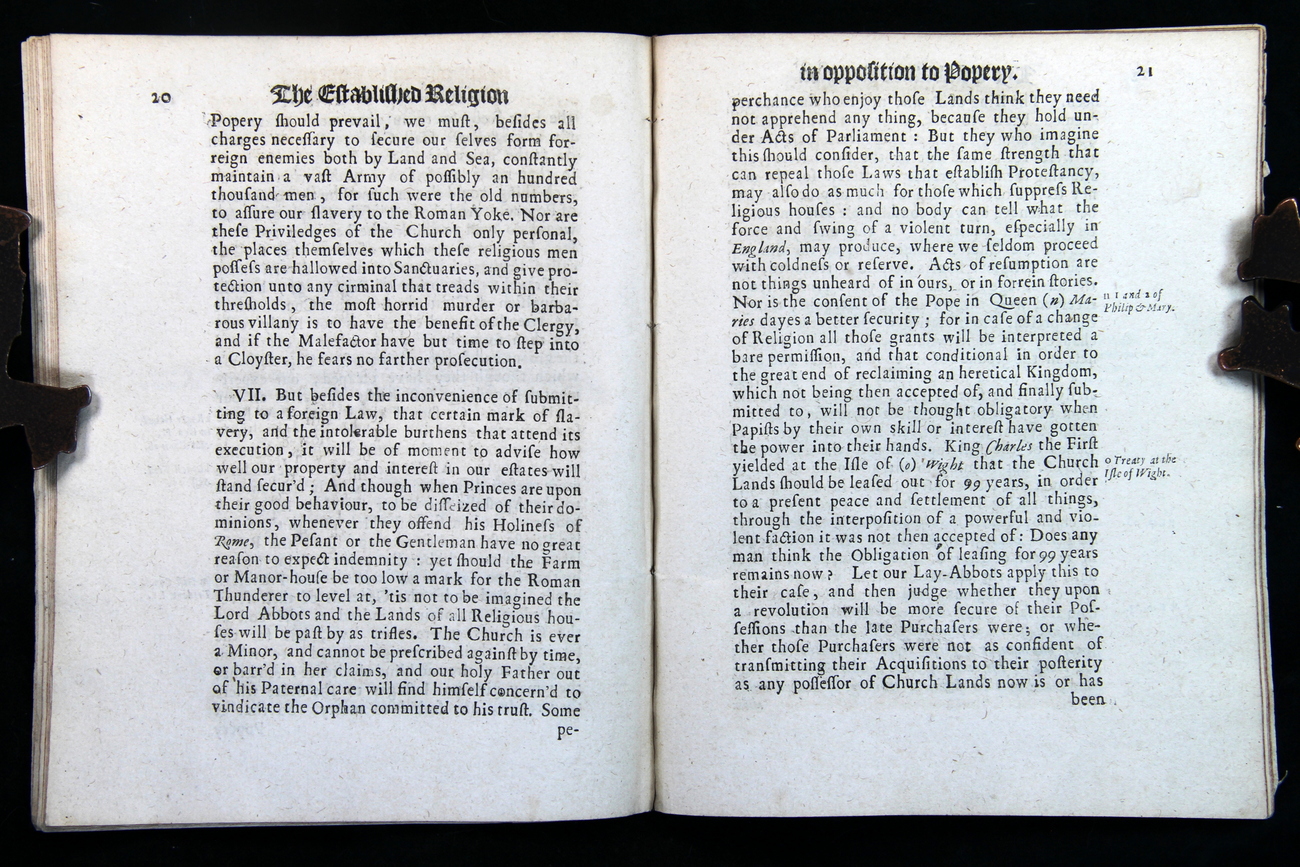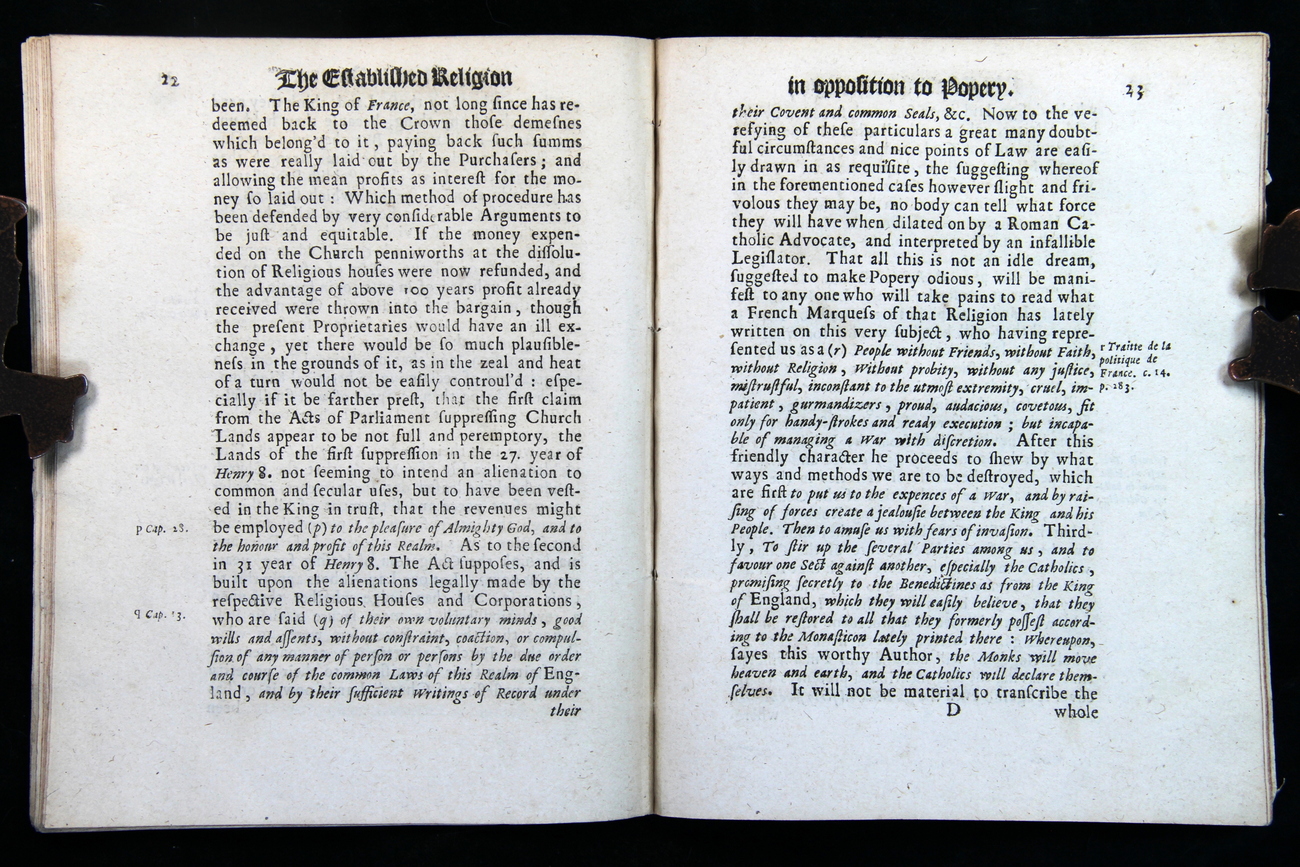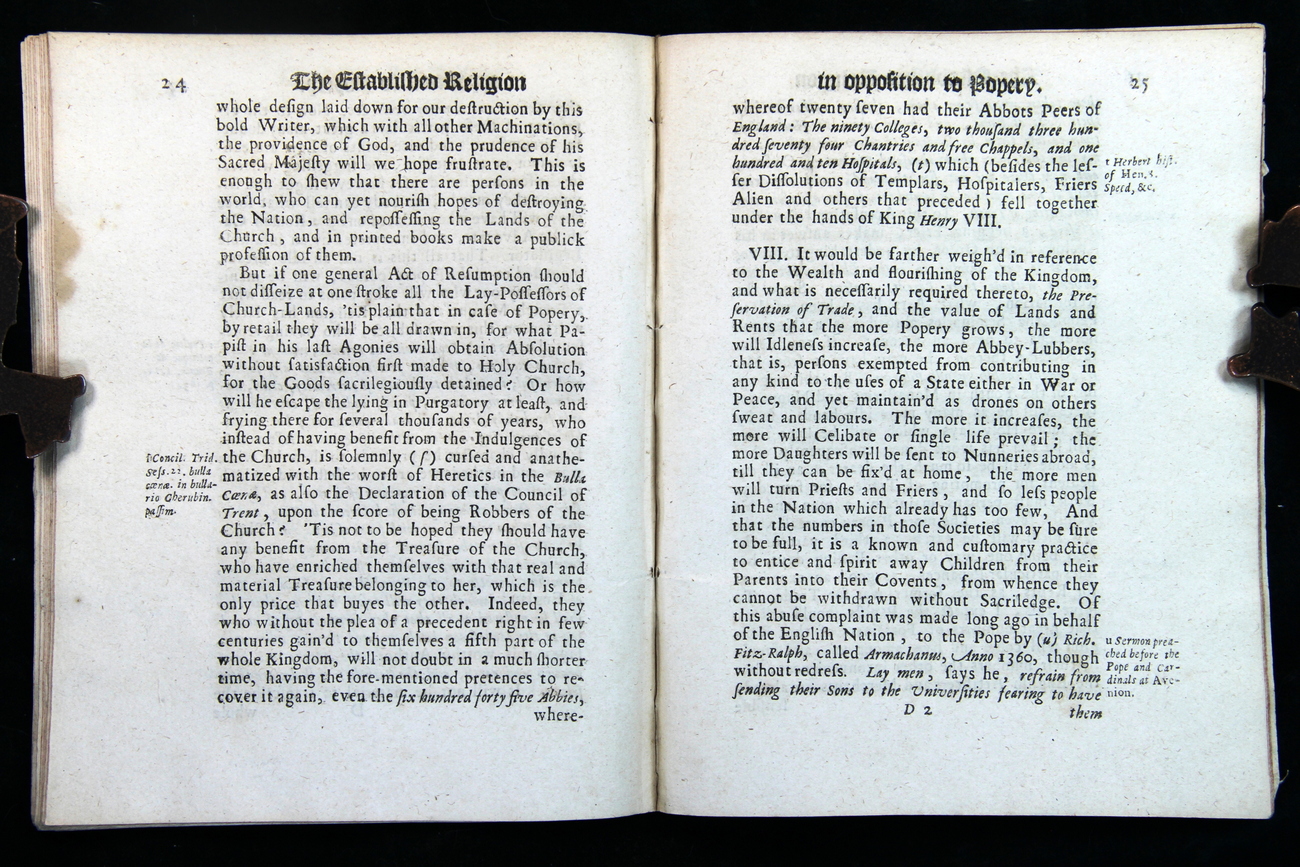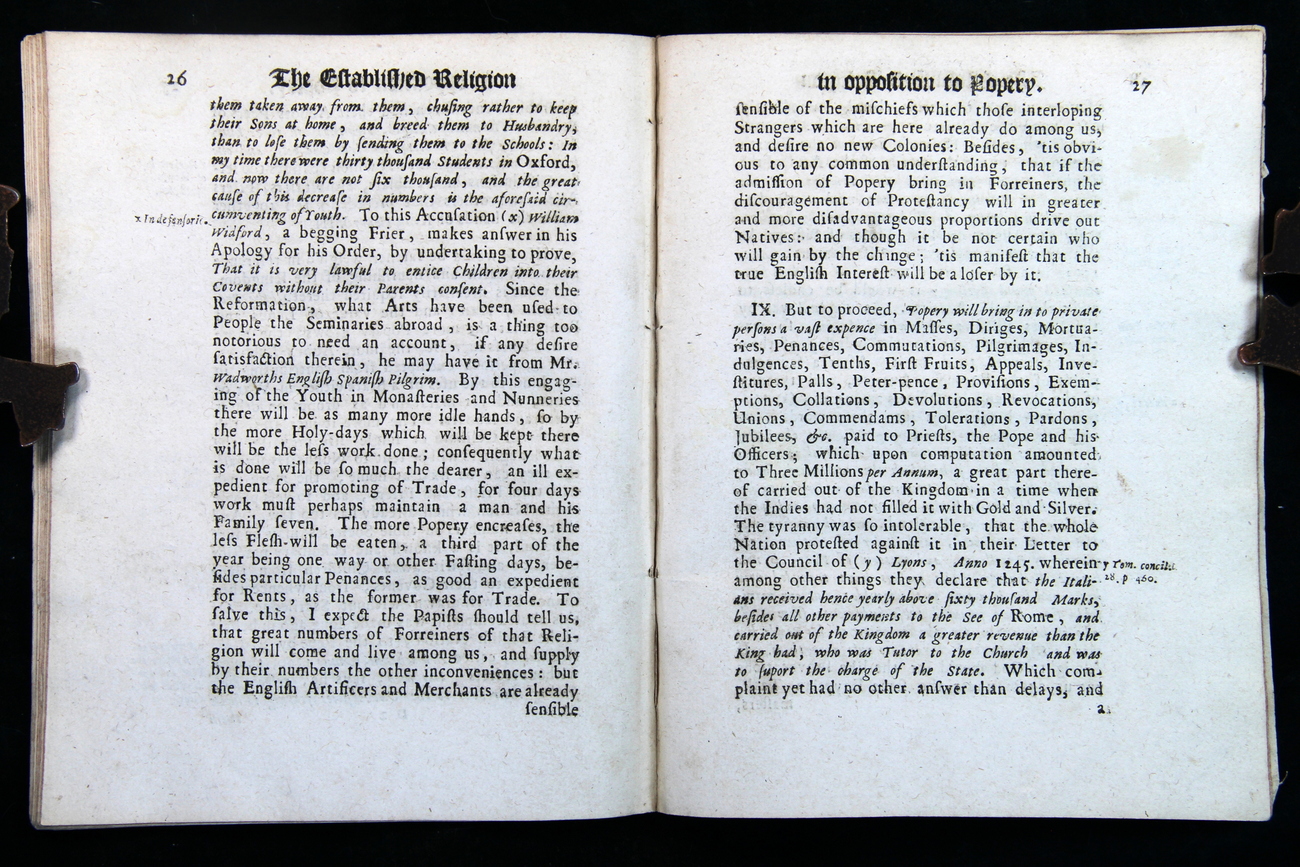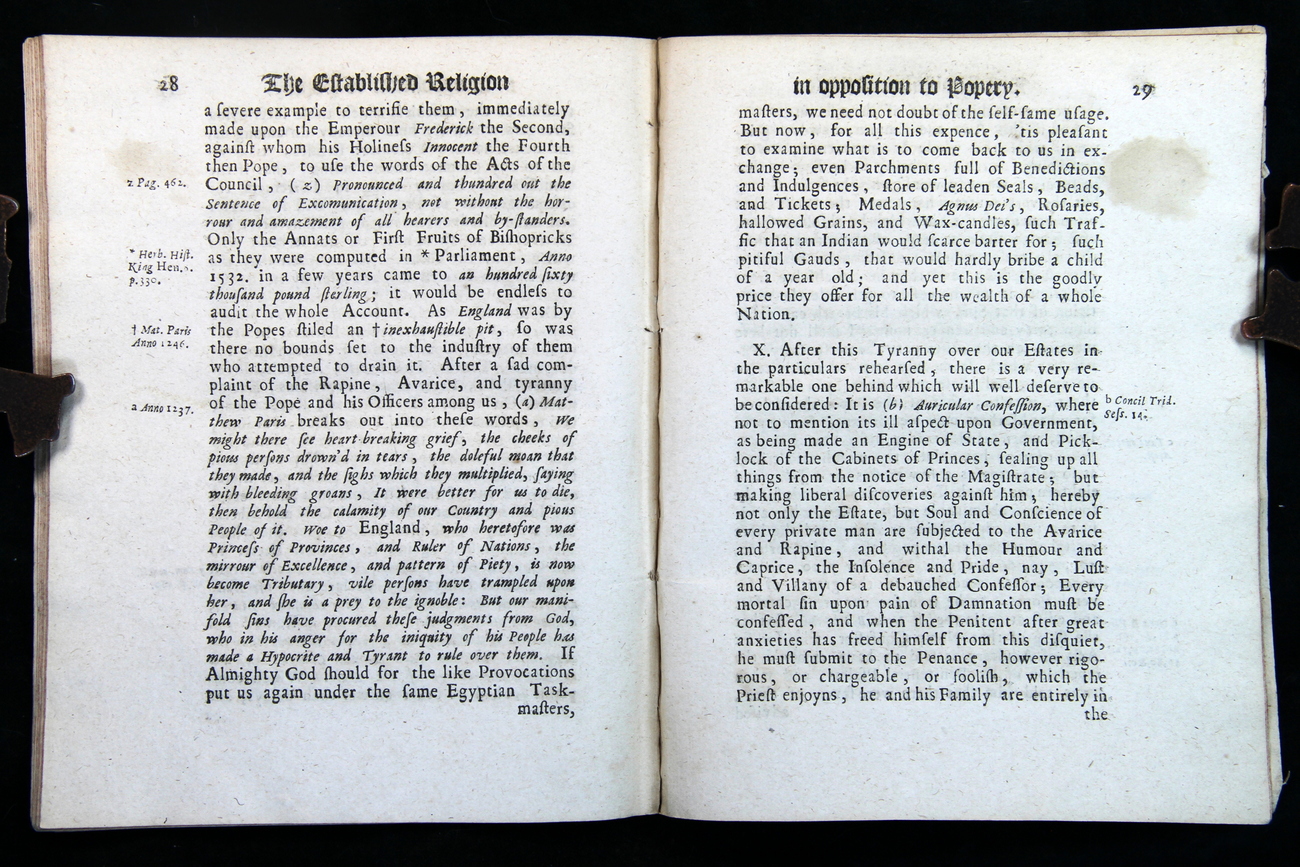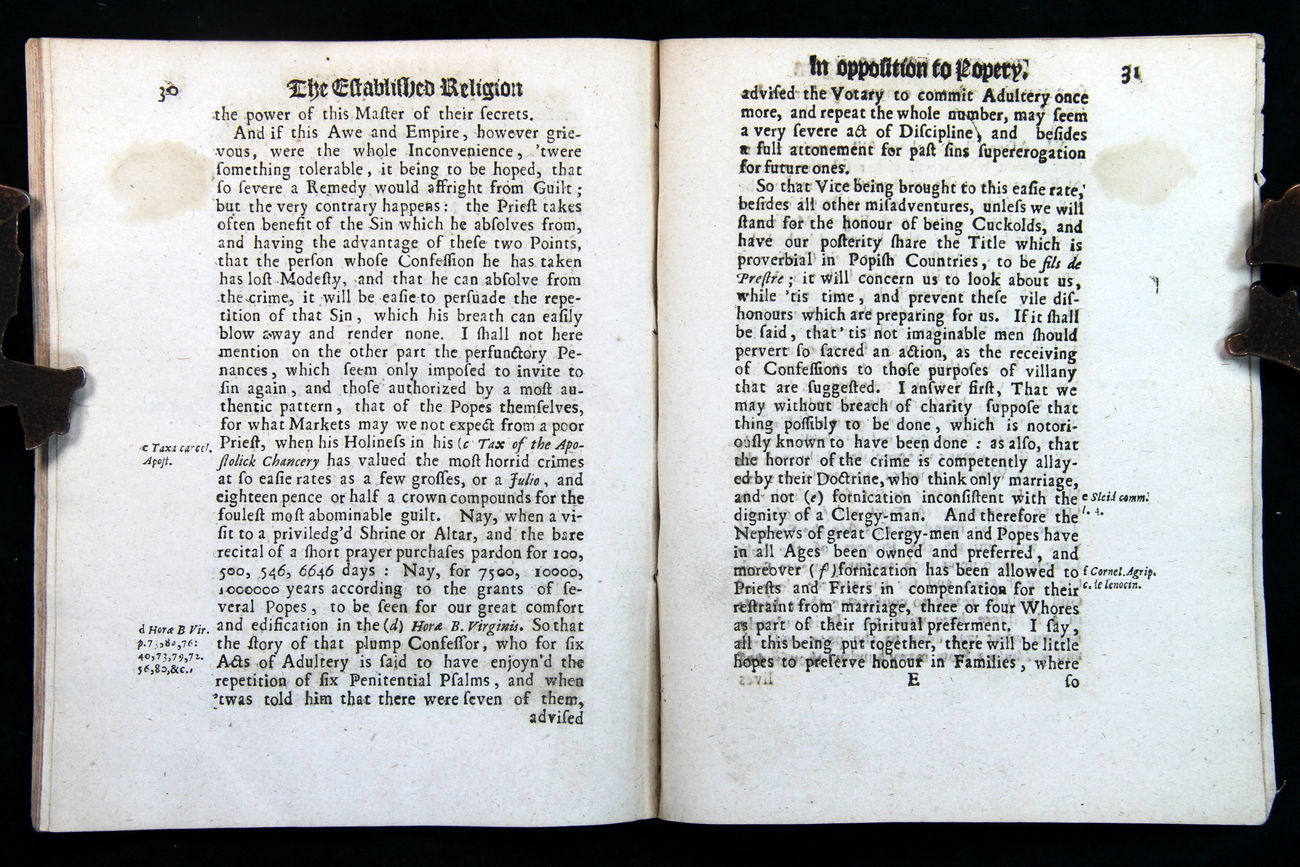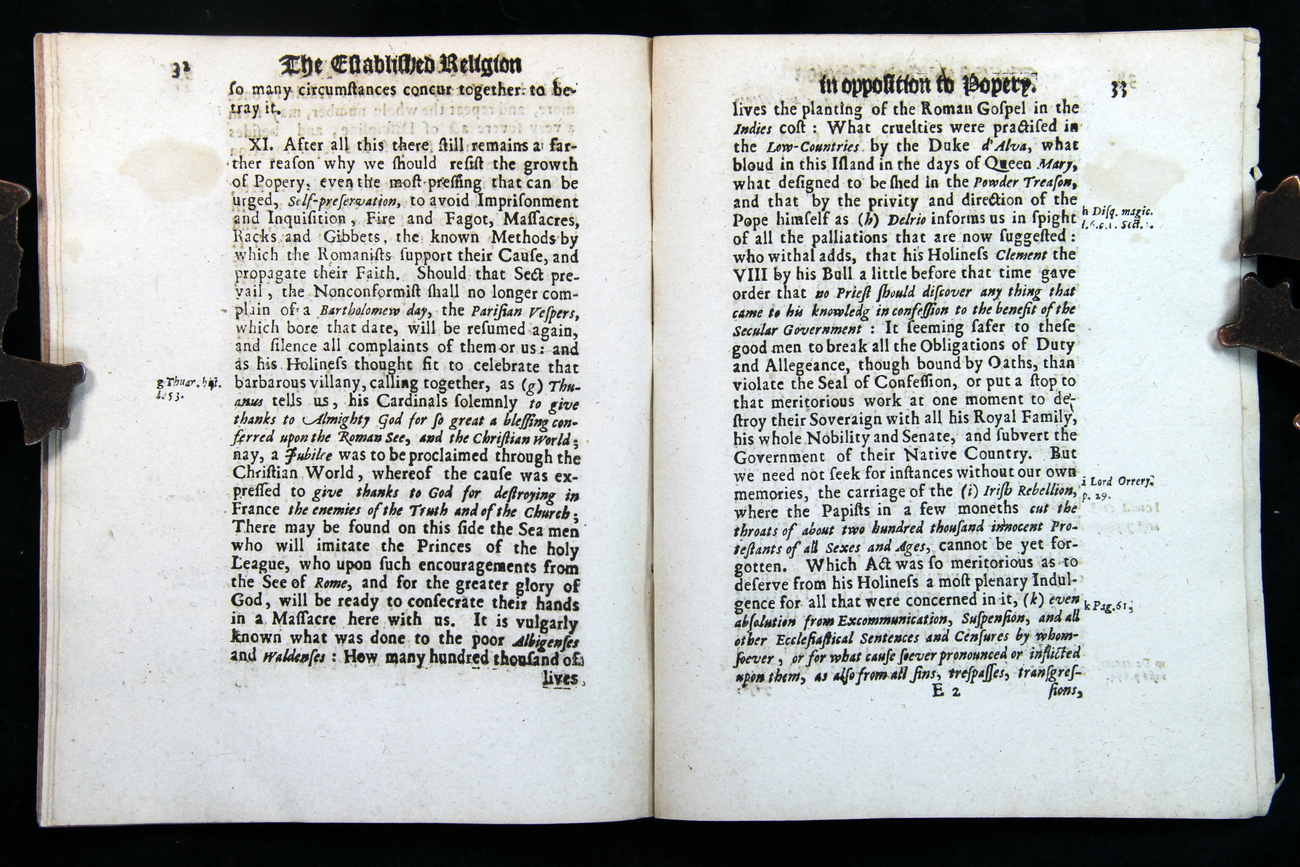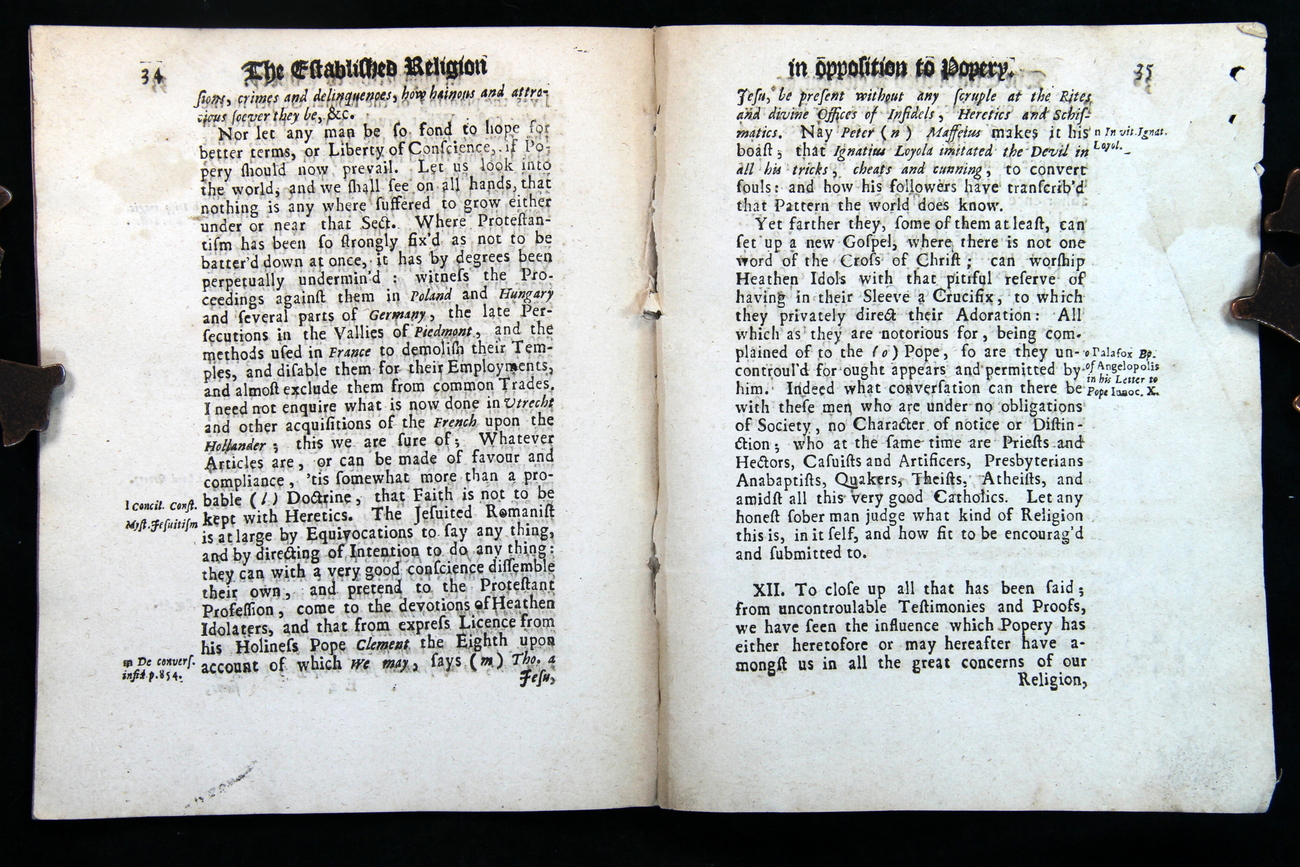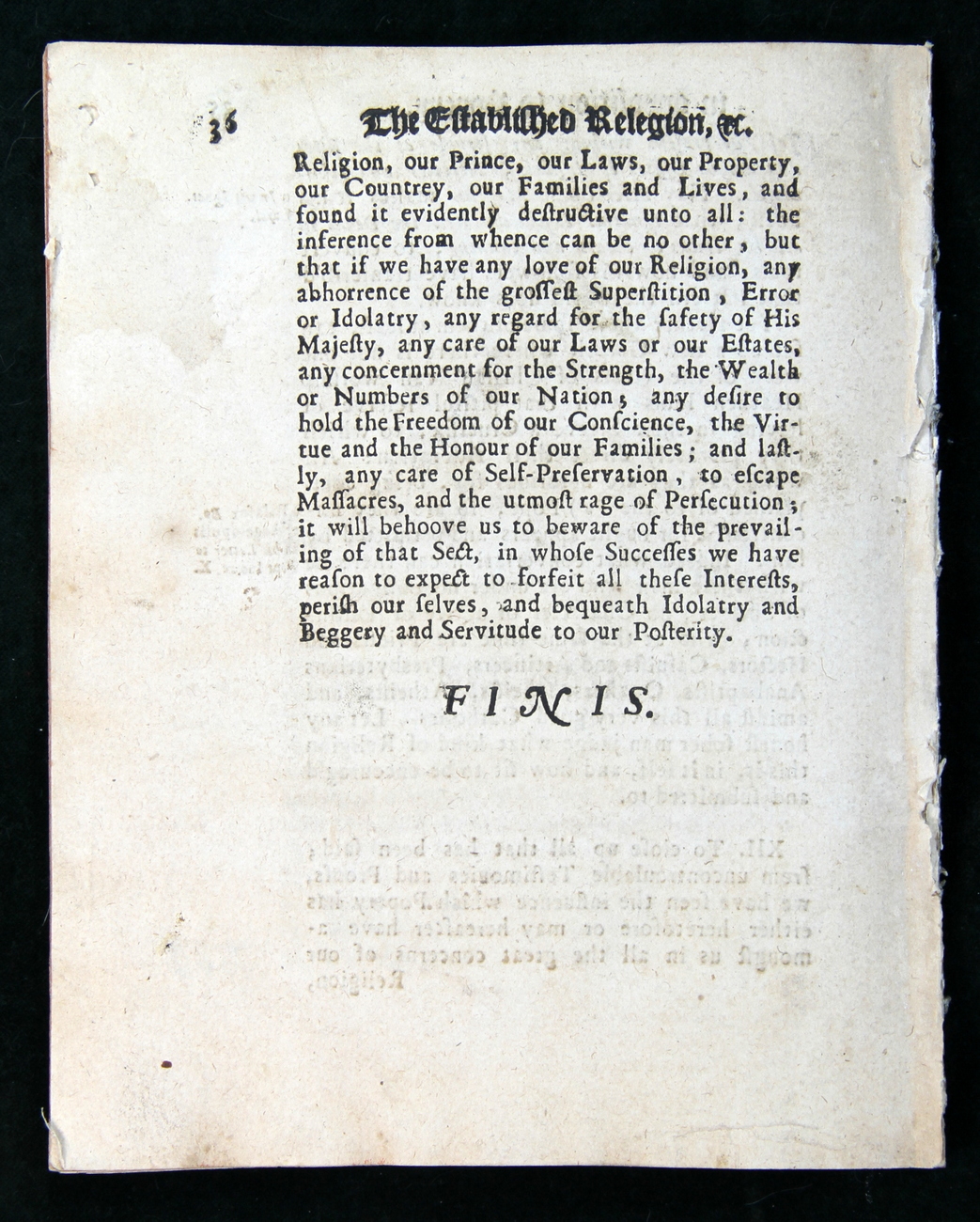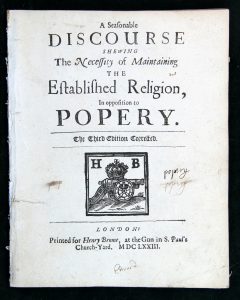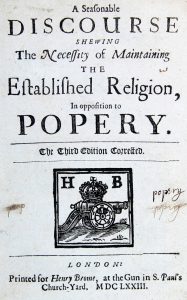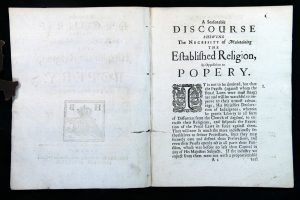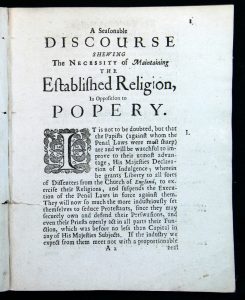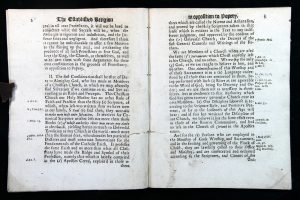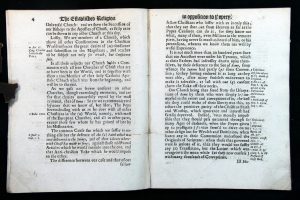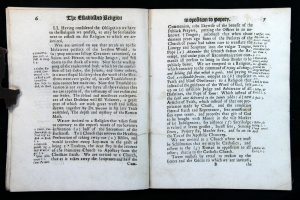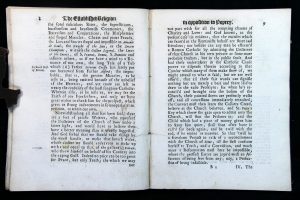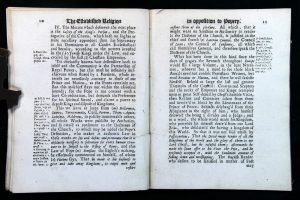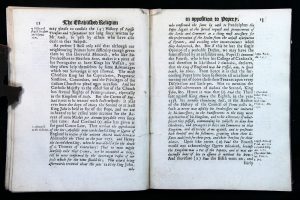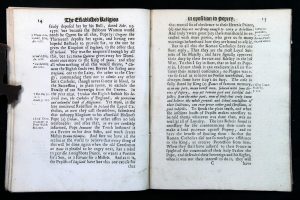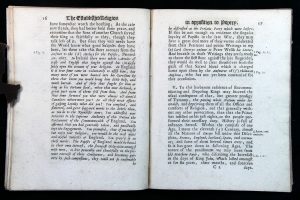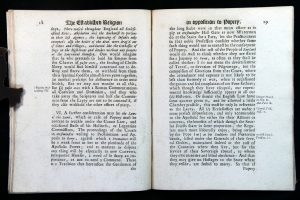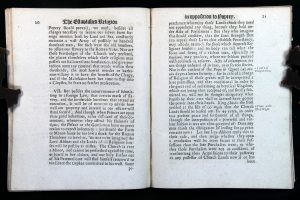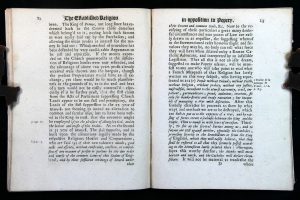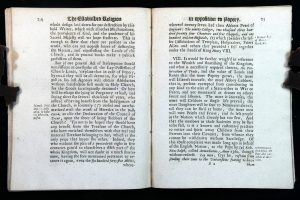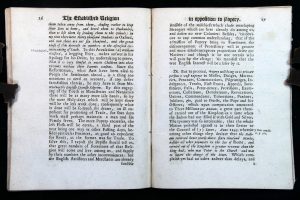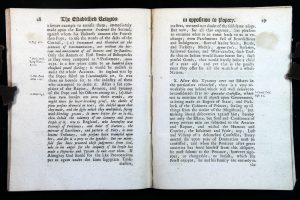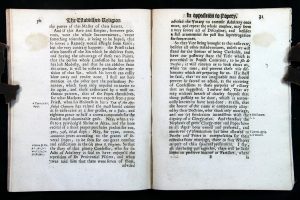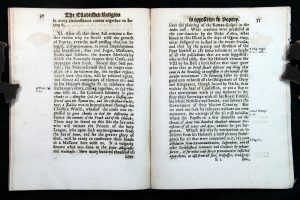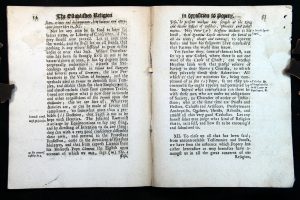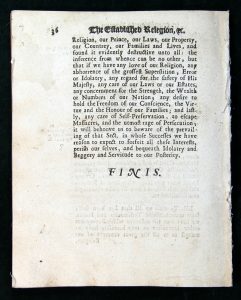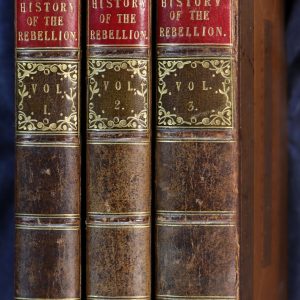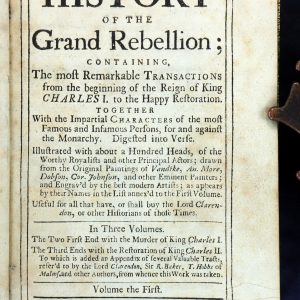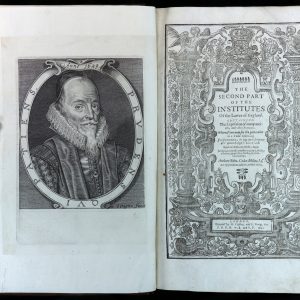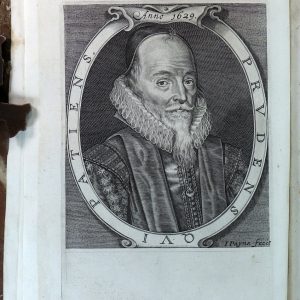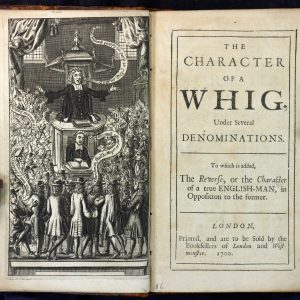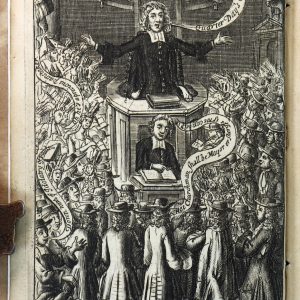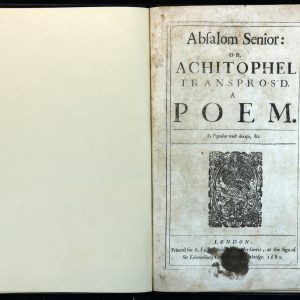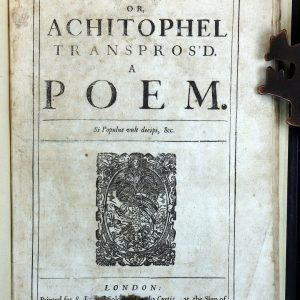William Lloyd,
A Seasonable Discourse Shewing the Necessity of Maintaining the Established Religion, In Opposition to Popery.
Printed in London for Henry Brome. 1673.
In Support for Parliament in it's Rejection of the Declaration of Indulgence, and in Favour of the Test Act. Here in the Third Edition. In Very Good Condition, Disbound, With Generally clean well Margined Leaves. Complete in All Respects
$125.00
In Support for Parliament in it's Rejection of the Declaration of Indulgence, and in Favour of the Test Act. Here in the Third Edition. In Very Good Condition, Disbound, With Generally clean well Margined Leaves. Complete in All Respects
In Support for Parliament in it’s Rejection of the Declaration of Indulgence, and in Favour of the Test Act. Here in the Third Edition. In Very Good Condition, Disbound, With Generally clean well Margined Leaves. Complete in All Respects
The volume(s) measure about cm. by cm. by cm.
Each leaf measures about 200 mm. by 160 mm.
- Main description
- Condition
- Biography / Bibliography
Main description
The full title reads as follows:
“A Seasonable Discourse Shewing the Necessity of Maintaining the Established Religion, In Opposition to Popery. / The Third Edition Corrected. / … / London: Printed for Henry Brome, at the Gun in S. Paul’s Church-Yard. MDCLXXIII. [1673]”
The volume is paginated as follows: [ii], 36.
The volume collates as follows: A-D4, E3.
Condition
The Volume is in Very Good Condition Disbound, with generally clean amply margined leaves, and with some small stains and fox marks otherwise.
Please take the time necessary to review the photos On Our Website in order to gain a better understanding of the content and condition of the volume.
Biography / Bibliography
William Lloyd
William Lloyd (18 August 1627 – 30 August 1717) was an English divine who served successively as bishop of St Asaph, of Lichfield and Coventry and of Worcester.
Lloyd was an indefatigable opponent of the Roman Catholic tendencies of James II of England, and was one of the seven bishops who, for refusing to have the Declaration of Indulgence read in his diocese, was charged with publishing a seditious libel against the king. However, he was acquitted in 1688, which was one of the events that lead to the fall of James II.
He engaged Gilbert Burnet to write The History of the Reformation of the Church of England and provided him with much material. He was a good scholar and a keen student of biblical apocalyptic literature and himself “prophesied” to Anne, Queen of Great Britain, Robert Harley, 1st Earl of Oxford and Mortimer, William Whiston, and John Evelyn the diarist. Lloyd was a staunch supporter of the Glorious Revolution. Per Wikipedia
While the Interregnum had resulted in a triumphant return of the Stuart monarchy in 1660, by 1673, growing fears of Roman Catholic influence at court led the English Parliament to introduce a new Test Act. Under this Act, all civil and military officials were required to take an oath (in which they were required to disavow the doctrine of transubstantiation and denounce certain practices of the Roman Church as superstitious and idolatrous) and to receive the Eucharist under the auspices of the Church of England. James refused to perform either action, instead choosing to relinquish the post of Lord High Admiral. His conversion to Roman Catholicism was thereby made public.
It was into this ‘stew’ of politics that Lloyd’s pamphlet descended.
King Charles II opposed James’s conversion, ordering that James’s daughters, Mary and Anne, be raised in the Church of England. Nevertheless, he allowed James to marry Mary of Modena, a fifteen-year-old Italian princess. James and Mary were married by proxy in a Roman Catholic ceremony on 20 September 1673. On 21 November, Mary arrived in England and Nathaniel Crew, Bishop of Oxford, performed a brief Anglican service that did little more than recognise the marriage by proxy. Many British people, distrustful of Catholicism, regarded the new Duchess of York as an agent of the Papacy. James was noted for his devotion. He once said, “If occasion were, I hope God would give me his grace to suffer death for the true Catholic religion as well as banishment.”
FEATURED PRODUCTS
-
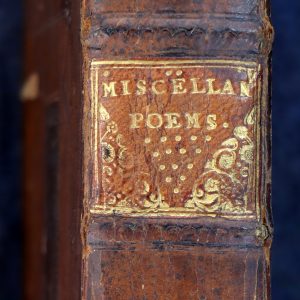
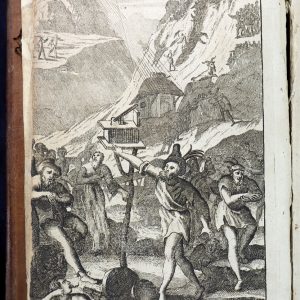 Add to cartQuick View
Add to cartQuick View -
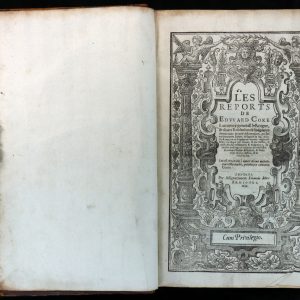
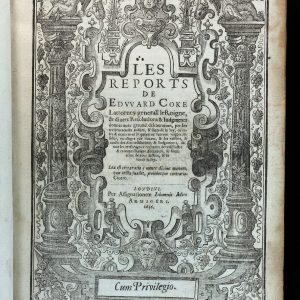 Add to cartQuick View
Add to cartQuick View -
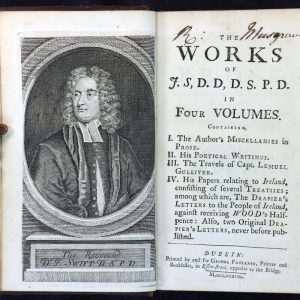
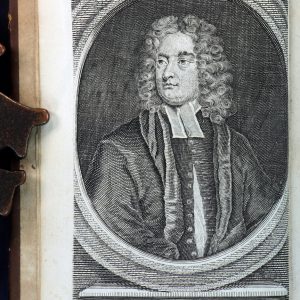 Add to cartQuick View
Add to cartQuick View -
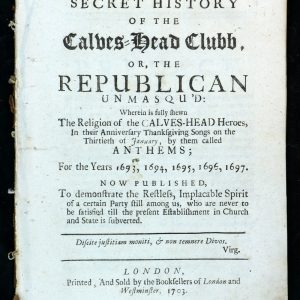
 Add to cartQuick View
Add to cartQuick View -

